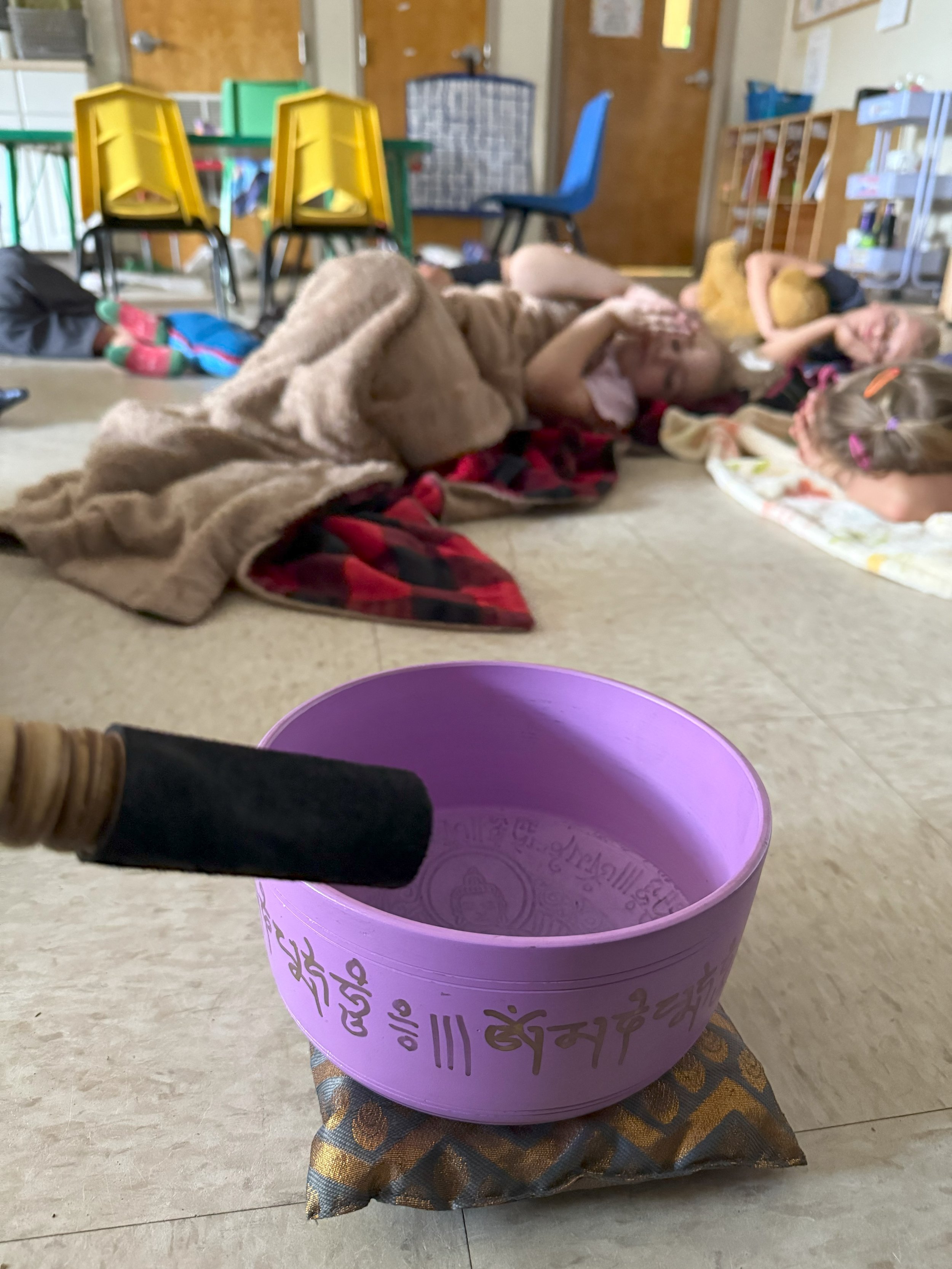
A little learner today, a world changer tomorrow
In our preschool classroom, we believe in student-led learning, where children's interests and curiosity guide their experiences. Small group settings allow for more personalized interactions, fostering deeper connections between children and teachers. Through this approach, children are empowered to take ownership of their learning in a supportive, developmentally appropriate environment.
Sensory Play
In a preschool discovery class, sensory and motor skills play a vital role in helping young children explore and understand the world around them. Activities are designed to engage the senses—such as touching textured materials, smelling scents, or listening to different sounds—which supports sensory development and encourages curiosity. At the same time, fine motor skills are strengthened through hands-on tasks like building with blocks, drawing, or using tweezers, while gross motor skills are developed through movement-based activities like climbing, dancing, or playing with balls. These experiences not only foster physical coordination but also enhance cognitive growth, problem-solving, and social interaction in an engaging, play-based environment.
Music & Literacy
Music and literacy are deeply interconnected in the preschool classroom, offering children a joyful and meaningful way to develop early language and communication skills. Through singing songs, reciting rhymes, and engaging in rhythmic movement, children begin to recognize patterns in sounds, which supports phonemic awareness—a key foundation for reading. Music also introduces new vocabulary, encourages active listening, and strengthens memory. Literacy activities, such as shared reading, storytelling, and letter play, are often enhanced with music, making learning more engaging and helping children make connections between spoken and written language. Together, music and literacy foster a love for learning while building essential skills for future academic success.
Free Play
Free play is a fundamental part of the preschool experience, offering children the opportunity to explore, create, and interact with others at their own pace. During free play, children choose their activities—whether it's building with blocks, engaging in pretend play, drawing, or exploring sensory materials—fostering independence and decision-making skills. This unstructured time supports social development as children learn to cooperate, negotiate, and resolve conflicts with peers. It also encourages imagination, problem-solving, and emotional expression, all of which are essential for healthy development. Free play allows teachers to observe children's interests and developmental needs, guiding future learning in a natural, child-centered way.
Math
Hands-on math experiences are essential in preschool, as they help young children build a concrete understanding of basic math concepts through active exploration and play. Using manipulatives like counting bears, pattern blocks, measuring cups, and number puzzles, children can physically see and touch what they are learning—whether it's sorting, counting, measuring, or identifying shapes. These tactile experiences support the development of number sense, spatial awareness, and problem-solving skills in a way that feels natural and engaging. By interacting with math in meaningful, real-world contexts, preschoolers begin to develop a positive attitude toward math and lay the groundwork for future academic success.
Group Reading
Literacy and group reading are central to our preschool program, helping children develop essential language and communication skills in a joyful, interactive way. Group reading sessions introduce children to the rhythm and structure of language, build listening skills, and spark imagination through stories. These shared experiences also promote vocabulary development, comprehension, and print awareness as children begin to recognize letters, sounds, and storytelling patterns. Reading together in a group fosters a sense of community, encourages discussion, and allows children to express their thoughts and make connections—all key components of early literacy and social development.
Nap / Meditation
Our preschool schedule includes a 45-minute nap or quiet rest period each day to support children’s physical and emotional well-being. This time allows children to recharge their bodies and minds after a morning of active learning and play. For those who do not sleep, we offer calming alternatives such as soft music, guided meditation, or quiet individual activities like looking at books or drawing. Gentle meditation and mindfulness practices help children relax, develop self-regulation, and build awareness of their emotions and surroundings. This peaceful part of the day creates a soothing transition before moving into the afternoon's activities.
Personal Hygiene
Personal hygiene is an important part of our preschool routine, helping children develop healthy habits that support their overall well-being. After lunch, children participate in supervised tooth brushing to reinforce oral health and teach the importance of caring for their teeth. We also guide them in washing their faces and hands, promoting cleanliness and self-care. These daily practices not only help prevent the spread of germs but also build independence, responsibility, and confidence in managing personal routines. By making hygiene a regular part of the day, we help children understand its value in a positive and age-appropriate way.







